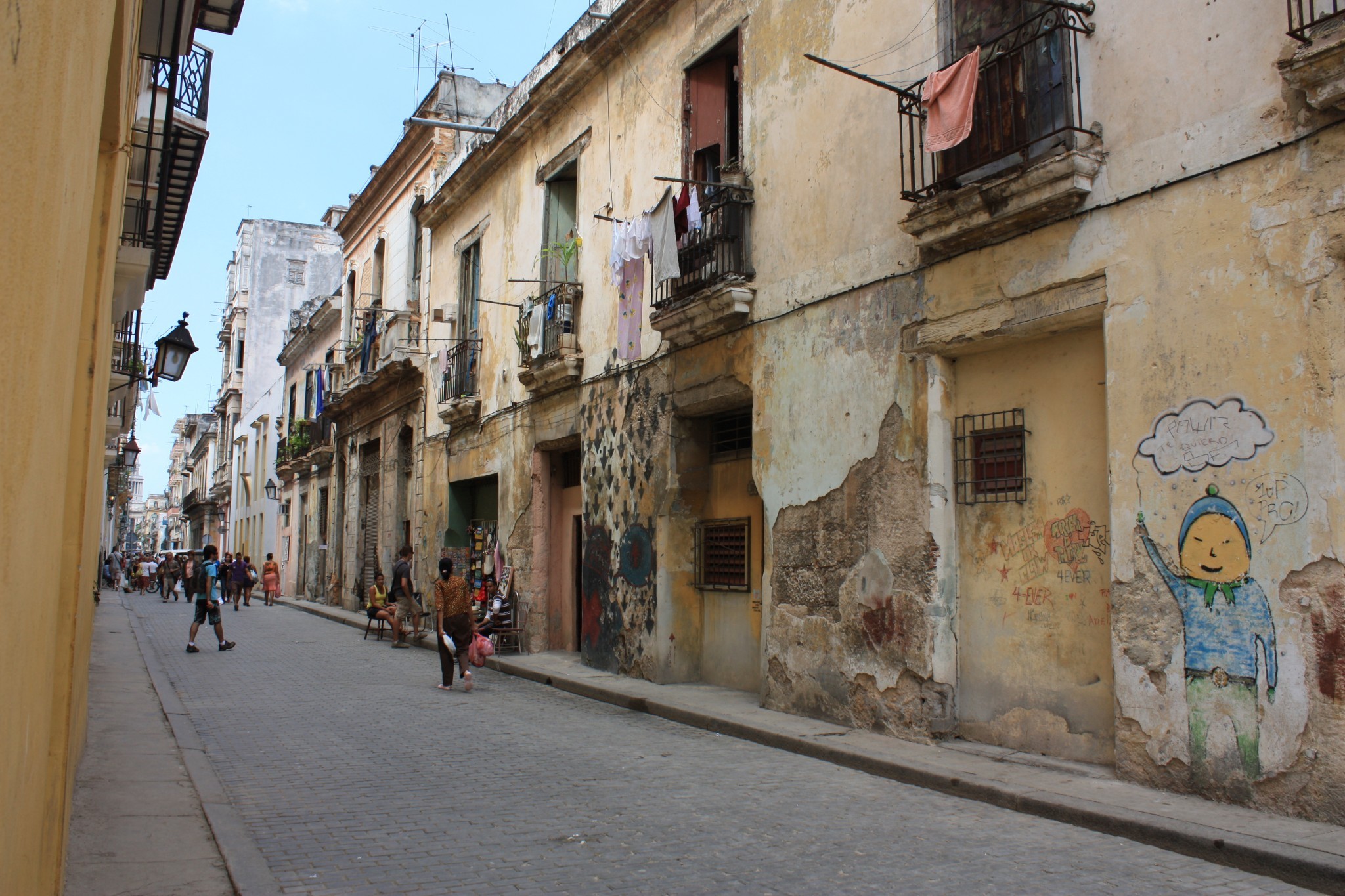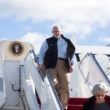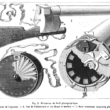After President Barack Obama announced that the U.S. will reestablish diplomatic relations with Cuba, a collective “Oh no!” permeated the internet. And it persists. Not from right-leaning Cuban Americans in Miami, but from American liberals. The untouched, idyllic island they dreamed of visiting would soon be spoiled by corporate investment. Cuba will be ruined by McDonald’s, Starbucks, and malls. The environment will be destroyed. Get there soon before Walmart takes over.
These concerns are far from the reality of most Cubans. As the world progressed, Cubans have been on pause for 60 years. Riding a horse to school is not what they want to do in 2015. Cramming seven people on the back of a motorcycle is not quaint. Cubans are tired of fixing old cars. Tired of broken-down buildings, of shortages, of dirt roads. They are tired of the daily struggle to survive, which has left families permanently scarred, many of them dealing with alcoholism, domestic violence, and suicide. This daily struggle creates an atmosphere in which no one plans ahead, or develops new ideas. Many Cubans believe their country is mismanaged to ensure they have no time to protest and try to change the system.
This historic moment is not about the U.S., Canada, Latin America, liberals or conservatives. It’s about the Cuban people, and what kind of country they want to build for themselves.
Cubans want the same freedoms we enjoy in the U.S. If that involves fast food and trendy American shops, they will decide themselves. I doubt this will be the case. Cubans have their own culture, tastes, and way of life. They also have their own fledgling business ideas, but don’t have the freedom to fully pursue them. In the last few years, local entrepreneurs have developed home-grown restaurants and shops. But the government has put caps on the number workers they can employ, or the number of seats allowed in restaurants—an effort to protect from competition the inefficient state-owned companies that most Cubans consider dinosaurs.
Even though there are very few true Communists left on the island, there are many nationalists who want Cuba to remain Cuban. Cubans have developed their own art, dance, music, and film and television industries, with art biennials and film festivals that attract a growing number of foreign visitors. These are part of a unique Cuban identity that existed before the revolution, which will make it difficult for foreign companies to easily take over. Cubans—who know their own people better that do outsiders—will create their own markets and expand their own industries.
I grew up in Cuba in the 1970s, left on the Mariel Boatlift, and went to art school in New York City. I consider myself very liberal, grounded in the beliefs of social justice. What I want for Cuba—human rights, free press, free speech, and freedom of assembly—are values American liberals fight for and defend every day.
In college, I met professors across the spectrum of the American left who loved the Cuban Revolution. They were blindly committed to what they thought Cuba was. They believed in an ideology, and were happy there was a place in the world where it existed, while they enjoyed all the freedoms the U.S. afforded them.
Those who had visited Cuba often stayed in resorts in Havana and rarely ventured to towns that dot the countryside. Or they were entertained, escorted and shown around by government officials. If you were to venture out unescorted beyond Havana, and if the locals trusted you, you would hear about the lack of food, water, and electricity. If you were to lay blame on the embargo, Cubans would point to the resorts on the island. I was asked recently, “How come there’s water, electricity, and overflowing buffets at resorts?” The government knows how to bring food and comfort to resorts, but they can’t figure out how to bring it to its own people.
The American media suggest life in Cuba will now drastically change. Cubans are more circumspect; they’ve been promised many things that haven’t come true. They know the regime will stand in the way of real change. As will most Republicans in the American Congress, where the wheels grind slowly. Although diplomatic ties have been established, the embargo is still in effect. The Senate has to confirm an ambassador, Congress has to fund an embassy and approve of most changes to the embargo. For now, there will be a lot of diplomats flying back and forth to Cuba, but not many American tourists. Things will move a step forward when Americans are allowed to travel freely to Cuba and Cubans are allowed to travel to the U.S. That exchange is crucial to true openness in Cuban society. (The Obama administration announced new rules on Jan. 15 that ease restrictions on travel to Cuba from the U.S.)
This historic moment is not about the U.S., Canada, Latin America, liberals or conservatives. It’s about the Cuban people, and what kind of country they want to build for themselves. There is so much potential in Cuba, and millions of hard-working people hungry for a new life, but they need the freedom to move forward. That freedom will not come from the American government; it will have to come from the Cuban system. Don’t rush and pack your bags before things change. Cuba’s “rustic” charm—and its dysfunction—will remain for years to come.
Edel Rodríguez is an illustrator living in New Jersey. He was in Havana in December of last year for the opening of a solo exhibition of his work at the Casa de las Américas. He illustrates The Washington Spectator.







I find the pieces in the February 1 issue on Cuba most helpful, as I was one of 24 who was on The Nation Institute trip to Cuba last June, 2014. Led by Katrina Vandenheuvel and Peter Kornbluh, we had an excellent week-long introduction to present day Cuba. In my reading before and afterwards I explored the thought of Jose Marti with regard to his views of Henry George. As one who has now spent over two decades researching Georgist economics I urge Cuban leaders to retain titles to its birthright natural resources and collect the land rents to finance public goods and services. This will serve the nation far better than taxing labor and goods that incur a deadweight loss on productivity estimated to be over a tenth of productivity. Marti was an ardent Georgist, and we are now able, a century and more later, to demonstrate that a tax on resource rents comports perfectly with all the textbook principles of sound taxation.
I am one of those Canadian tourists who love to go to Cuba, and I must say I have to agree with Edel. You know there is something wrong with Cuba when you are in the departure lounge at the airport. You have been through security, you are waiting to board, there are armed guards at the gate. They are not their to keep the tourists in, they are there to stop the Cubans from leaving.
Edel is right. The electricity and water never go off in the resorts, but there is a reason for all those water storage tanks on every house that can afford one
I will hate McDonalds in Cuba, but whether there is McDonalds in Cuba should be up to Cubans.